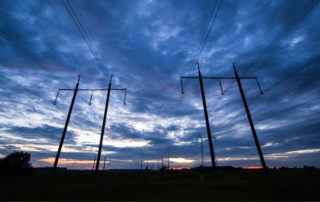Spot vs Forward: A Guide to Short Term and Long Term Energy Trading
In the dynamic energy industry, understanding the spot and forward markets is essential for managing costs and planning ahead. These markets serve distinct purposes, balancing immediate energy needs with long-term strategies, and are vital for businesses navigating deregulated energy markets.
Rolling Blackouts and Load Shedding: Managing Energy Demand During Crisis
Rolling blackouts and load shedding are emergency measures used by utilities and grid operators to stabilize the power system during times of crisis. By managing electricity demand and supply, these actions help prevent large-scale outages, but they also raise questions about reliability, safety, and long-term energy solutions for businesses and households alike.
RTO vs. ISO: The Key Players In Power System Management
Understanding how electricity flows reliably across the grid requires insight into two key entities: Regional Transmission Organizations (RTOs) and Independent System Operators (ISOs). These organizations play a critical role in managing power transmission grids, ensuring grid stability, and facilitating competitive energy markets in deregulated regions.
Understanding Ancillary Services In Energy Markets And How They Affect Your Commercial Power Bill
Ancillary services play a critical role in ensuring the stability and reliability of the electric grid, directly impacting energy costs for commercial businesses. This guide delves into what ancillary services are, how they work in the energy market, and their implications for retail energy contracts, helping businesses better understand and manage these often-overlooked costs.
Understanding the Fuel Adjustment Clause (FAC): A Guide for Commercial Energy Customers
The fuel adjustment clause (FAC) plays a significant role in determining monthly energy costs for businesses, yet it’s often misunderstood. This article breaks down what the FAC is, how it impacts commercial utility bills, and actionable strategies to manage variable fuel costs effectively.
Load Serving Entity (LSE): What They Are And Their Roles In The Electricity Markets
Load Serving Entities (LSEs) are key players in the electricity market, responsible for providing power to consumers by purchasing it from the wholesale market. This blog explores the different types of LSEs, their roles in energy pricing, and how they help ensure reliable power delivery to businesses and households.





